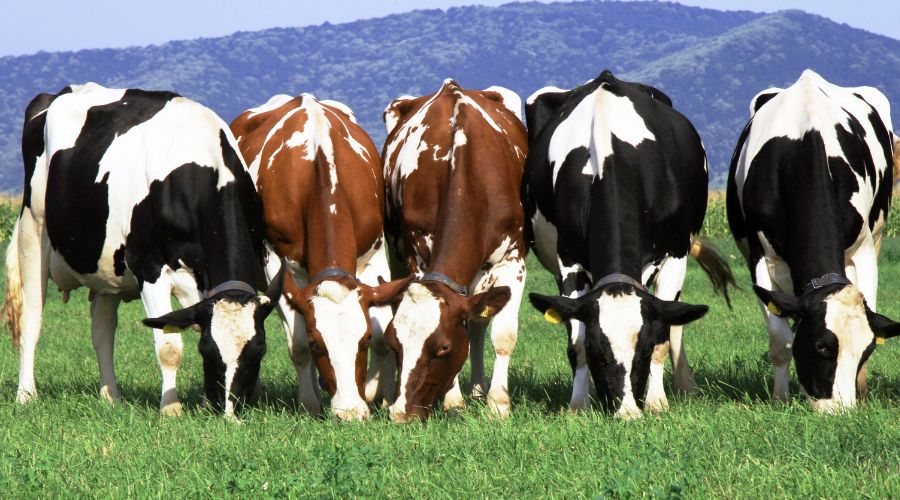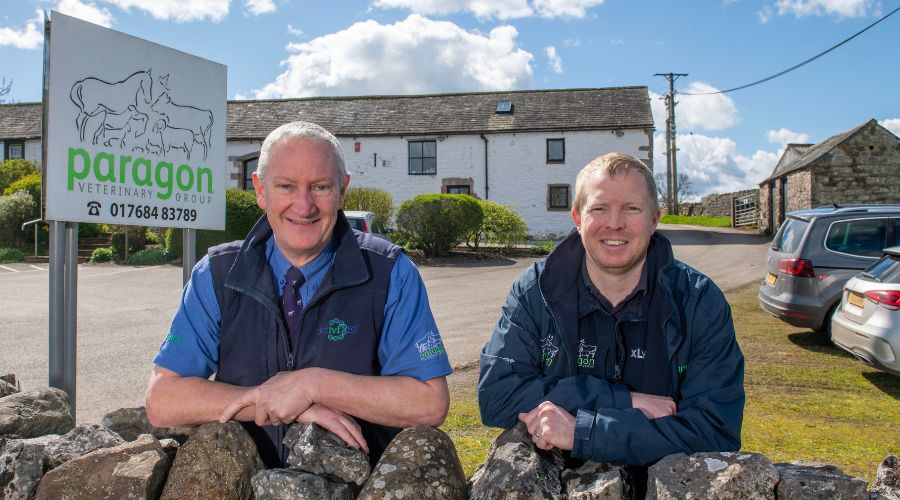Advanced breeding: The key to improving efficiency?
31st July 2024
Whilst often associated with ‘elite’ farming, advanced breeding techniques can significantly improve farm efficiency and reduce carbon footprints.

Techniques like IVF and embryo transfer are often thought of as a niche area in cattle breeding, but this picture is changing, according to Paragon Veterinary Group senior director David Black, and director and lead vet for advanced breeding, Rob Simmons.
Speaking during a recent podcast, the pair said that while some farmers may think advanced breeding is for the ‘elite’ – producing cows to sell for large sums at pedigree auctions, or as bull studs – these techniques can improve efficiency, reduce methane emissions, and add value for farms.
What is advanced breeding?
Advanced breeding refers to techniques that speed up or alter the natural breeding process, including artificial insemination, IVF, embryo transfer and flushing.
More advanced technologies coming down the line are embryo biopsies, gene editing and animal cloning.
Flushing cows and IVF embryo production allows farmers to identify the best female animals and produce from five up to 20 calves from those animals, rather than just one, which would be the case with natural breeding, Rob explained.
These calves can then be used as replacements, speeding up the process of improving the herd.
“Essentially what we’re looking to do for our clients is to maximise the number of calves from the best animals – that’s what leads to herd progress,” he added.
The definition of ‘best’ cows will vary – historically it’s often come down to productivity (e.g. more milk and milk solids for dairy cows, bigger carcases for beef) – but increasingly, we’re talking about efficiency, health and welfare.

Reducing methane emissions
Paragon recently launched a new project to produce cattle with lower methane emissions, whilst maintaining health and productivity.
Two closely related animals with the same diet and environment could have differing methane emissions depending on the population of bugs in the rumen, Rob explained.
This appears to be genetically driven too.
In the past year a new genomic index for methane efficiency was released – Paragon will use this alongside selective breeding to run though a couple of generations of dairy cattle, to see how much methane efficiency can be improved.
“There’s no doubt at all that ruminants produce methane. […] We can’t get away from that but what we can do is produce more good quality protein with less methane,” David said.
Next on the cards is epigenetics, which looks not only at which genes are there, but what switches genes on and off.
Importing more doesn’t make sense
The population is set to swell to nine billion by 2050, and while in the West there’s a desire to eat ‘less but better’ when it comes to meat and dairy, there is growing demand for these products from the aspiring middle classes in developing countries.
Discussing the myths around the environmental impact of meat and dairy consumption, David pointed out that the carbon footprint of milk and meat in the UK is about half the global average in very broad terms – so importing more food “doesn’t make sense”.
And with millions of acres globally that cannot be cropped, ruminants can turn poor quality grassland and forage into utilisable protein and foods.
David believes farmers are the “champions of change”, being uniquely able to sink carbon into the land and start tackling global cooling by improving livestock efficiency.
However, he stressed that the UK continues to have a ‘cheap food policy’ and farmers need to be paid realistic prices.
Barriers to advanced breeding
Asked why more farmers aren’t using these techniques, Rob said cost is undoubtedly part of it, and there’s no getting away from the fact that IVF, for example, costs more than buying a straw of semen.
However, as the industry grows, which it is at present, costs are starting to come down with economies of scale.
There may also be perceptions that IVF is a tool for problem breeding animals – perhaps because of its use in humans – but this is rarely the case for cattle.
Additionally, some are cautious about genetic advances, but David stressed that advanced breeding in cattle is simply a natural process, sped up dramatically.
Despite the perception that advanced breeding is only for elite breeders, the popularity of these techniques is growing.
Some local farmers have been on study tours in North America, where IVF is a huge industry and significant numbers of commercial dairy and beef farmers are now producing embryos, Rob added.
Genetics are a “great investment” on farm, the pair pointed out, because any improvements in genetics “last forever”, passing down through the cow’s descendants.
Getting started
The first step in improving your genetics is to do some measuring to identify the top 10% of the herd, so you can selectively breed replacements from them, Rob explained.
From there you can start to make a plan, asking yourself: What do I want from my herd? What improvements do I want to make? Where do I want the herd to be in five, 10, 15 years’ time?
Farmers have long recognised the value of artificial insemination, but advanced breeding allows you to consider not only the quality of the semen used, but the cow being inseminated.
The key is to only breed replacements that are going to flourish in your farm system.
Advanced breeding can help to produce the most efficient animals, to produce nutritious food using reduced inputs, with less waste, Rob said.
For more information on advanced breeding, visit: https://www.paragonvet.com/advanced-breeding
Read more livestock news.
